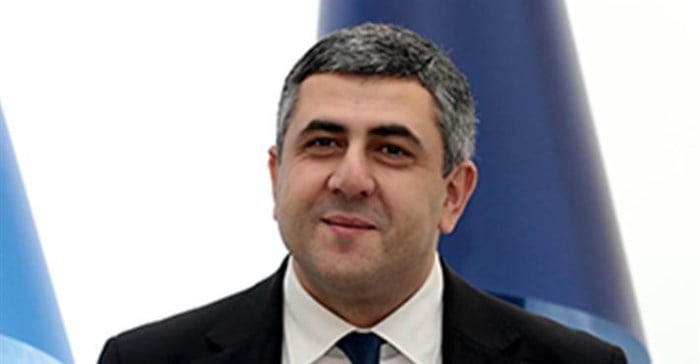
Zurab Pololikashvili
These being just among other African countries favoured by tourists not only during the Christmas season, but also throughout the year; for their exotic and relaxing nature. Magnificent sceneries, wild and untouched nature for remarkable safaris and inestimable coastlines, Africa is indeed a favourable tourism destination.
In the report, the United Nations World Tourism Organisation (UNWTO) secretary-general, Zurab Pololikashvili shares his insights on the growth of African tourism.
How is the African tourism sector performing and which are the driving factors?
International tourist arrivals in Africa are estimated to have increased by 8%. Results were driven by the continued recovery in North Africa and the solid growth in most destinations that reported data. Tunisia continued to rebound strongly in 2017 with a 23% growth in arrivals, while Morocco also enjoyed better results after weaker demand in the previous year. Growing demand from European source markets and a more stable environment contributed to the positive results.
In sub-Saharan Africa, strong performance continued in large destinations including Kenya, Côte d’Ivoire, Mauritius and Zimbabwe. South Africa reported slower growth in arrivals through a strong increase in expenditure. Island destinations Seychelles, Cabo Verde and Reunion Island, all reported double-digit growth in arrivals, benefiting from increased air connectivity.
The driving factors
The Africa agenda 2063 remained a strong driving factor to the growth of the industry; Issuance of the AU e-Passport and creation of visa upon arrival, e-visa and visa-free travel for African citizens in line with the concept of unrestricted movement of persons, goods and services across the countries. Others include; infrastructure development aiming at unlocking intra-regional economic exchange and establishing regional value chains for increased competitiveness, as well as the political goodwill and mainstreaming of national agenda and implementation of tourism transformation policies.
What are the greatest challenges facing the growth and expansion of the tourism sector in Africa?
Among challenges hindering the growth of the sector are travel advisories by international tourist sources and political instability, at some. Inadequate air travel between major African cities due to poor intra-African air connectivity and lack of strategic marketing of brand Africa are also among top issues. We are also dealing with negative perceptions of brand identity and continent image. Africa is not a country but a continent, home to more than a billion very creative, entrepreneurial and tech-savvy Africans. It is, however, viewed as the only home to fascinating wildlife and torn apart by war, poverty and diseases.
Last but not least, underdeveloped tourism infrastructure, visa restrictions and lack of a common visa policy, and lack of access to adequate funding and underfunding at the ministerial level.
In response to these challenges, the UNWTO is aligning and developing national tourism strategies and policies in line with national agenda. The 10-point UNWTO Africa Agenda is a roadmap towards the maximisation of Africa’s tourism potential. We are putting emphasis on travel and Tourism as a driver of jobs growth and economic recovery, provision of technical support to governments and affiliate private sector organisations for the development and promotion of sustainable tourism at the destinations. UNWTO is also providing risk and crisis management courses in conflict-prone zones, as well as helping in the establishment of brands and African-image campaigns.
What role is the rising middle class playing in boosting Africa’s domestic tourism, as a contribution towards achieving the middle-income status?
People’s movement is no longer a luxury set aside for the few with high per capita income but a basic need for the ever-increasing majority of the middle class who create and shape the future generation entrepreneurs.
A growing middle class is a sign of a robust economy. The existence of domestic tourists who have more money to spend at their disposal and thus willing to travel more has led to the mushrooming of low-cost airlines, upward growth of bed capacity in main cities; flourishing of the so-called shared economy.
Traditionally, tourism was seen as something only for foreigners, but this myth has been demystified by the fact that travel and leisure is not the sole domain of foreigners, but also for the locals to have a real-life experience within the richness and diversity of their countries, which in turn translates positively into the national economy.


























